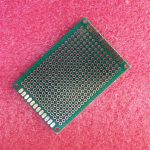Why YouTube is a Valuable Resource for Hardware Engineers
YouTube has become an incredibly useful platform for professionals in all industries to access educational content, connect with experts, and stay current in their field. For hardware engineers specifically, YouTube offers several key benefits:
-
Access to expert knowledge: Many YouTube channels are run by experienced hardware engineers who share their knowledge and insights through tutorials, product reviews, teardowns, and more.
-
Exposure to cutting-edge technology: Hardware engineering is a constantly evolving field. YouTube allows you to see the latest product releases, technological advancements, and engineering techniques as they emerge.
-
Practical skill-building: Many channels provide hands-on tutorials and step-by-step guides for various engineering tasks, allowing you to practice and refine your skills.
-
Networking opportunities: By engaging with content creators and other viewers in the comments section, you can connect with professionals in your field, exchange ideas, and potentially open up new career opportunities.
By strategically using YouTube as a learning tool, you can gain the knowledge and skills needed to stand out in your field and negotiate a higher salary.
57 YouTube Channels for Hardware Engineers
Here are 57 of the best YouTube channels for computer hardware engineers, organized by category:
General Hardware Engineering Channels
These channels cover a wide range of topics related to hardware engineering, from product reviews to industry news and analysis.
-
Engineering Explained
Subscribers: 2.5M
Must-Watch Video: How Does a Transistor Work? -
Linus Tech Tips
Subscribers: 14.1M
Must-Watch Video: ULTIMATE Liquid Cooling PC Build Guide! -
EEVblog
Subscribers: 1.01M
Must-Watch Video: Electronics Jobs: What’s it like to be a Hardware Engineer? -
Adafruit Industries
Subscribers: 288K
Must-Watch Video: Hardware Engineering with Adafruit: BEST of 2022 -
Tech Ingredients
Subscribers: 581K
Must-Watch Video: How to Make a Custom PCB (Simple!)
Microcontroller & Embedded Systems Channels
If you work with microcontrollers or embedded systems, these channels provide valuable resources for learning and troubleshooting.
-
Microchip Technology
Subscribers: 23.7K
Must-Watch Video: Microchip’s 32-bit Embedded Software using MPLAB -
Texas Instruments
Subscribers: 63.9K
Must-Watch Video: Introduction to Embedded Systems -
ST MCU
Subscribers: 14K
Must-Watch Video: Getting Started with STM32 Microcontrollers
PCB Design & Manufacturing Channels
These channels focus on PCB design, layout, and manufacturing techniques, which are essential skills for many hardware engineering roles.
-
Robert Feranec
Subscribers: 118K
Must-Watch Video: PCB Design Tutorial – Learn the Basics -
Phil’s Lab
Subscribers: 139K
Must-Watch Video: PCB Design for Beginners: 5 Tips to Quickly Start Your First PCB Design -
JLCPCB
Subscribers: 35.3K
Must-Watch Video: JLCPCB Factory Tour
FPGA & VHDL Channels
For engineers working with FPGAs and VHDL, these channels provide tutorials, project ideas, and troubleshooting tips.
-
FPGA4student
Subscribers: 9.15K
Must-Watch Video: VHDL Basics -
Nandland
Subscribers: 32.7K
Must-Watch Video: FPGA Programming Projects for Beginners -
ASIC World
Subscribers: 13.4K
Must-Watch Video: FPGA Design & VHDL Coding Tutorials
Networking & IoT Channels
As more devices become connected, hardware engineers with networking and IoT skills are in high demand. These channels can help you stay current in these areas.
-
Cisco Networking Academy
Subscribers: 28.4K
Must-Watch Video: Introduction to Networking | Network Fundamentals Part 1 -
IoT For All
Subscribers: 3.2K
Must-Watch Video: Introduction to IoT | Internet of Things Explained -
Ubidots IoT
Subscribers: 2.2K
Must-Watch Video: IoT Intro and Overview
Robotics & Automation Channels
Robotics and automation are rapidly growing fields that require skilled hardware engineers. These channels provide insights into the latest technologies and techniques.
-
Boston Dynamics
Subscribers: 2.83M
Must-Watch Video: Atlas Gets a Grip -
Robotics with Ara
Subscribers: 14K
Must-Watch Video: Robotics Training for Beginners -
Learn Robotics
Subscribers: 95.3K
Must-Watch Video: Learn Robotics with Raspberry Pi – A Complete Course
Salary & Career Advice Channels
In addition to technical skills, it’s important to stay informed about industry trends, salary expectations, and career growth strategies. These channels provide valuable insights in these areas.
-
Glassdoor
Subscribers: 46.6K
Must-Watch Video: How to Negotiate Your Salary -
Engineering.com
Subscribers: 23.9K
Must-Watch Video: Engineering Jobs: What’s it like to work as an Engineer? -
CareerVidz
Subscribers: 130K
Must-Watch Video: Negotiating a Higher Salary (Step-by-Step Guide)
How to Use YouTube to Boost Your Hardware Engineering Career
Now that you have a curated list of valuable YouTube channels, how can you use them effectively to grow your skills and increase your earning potential? Here are some tips:
-
Set learning goals: Identify specific areas where you want to improve your knowledge or skills, and seek out relevant videos on those topics.
-
Create a study schedule: Dedicate regular time each week to watching tutorials, taking notes, and practicing what you’ve learned.
-
Engage with the community: Participate in the comments section, ask questions, and connect with other hardware engineers to expand your network and learn from their experiences.
-
Apply your knowledge: Look for opportunities to put your new skills into practice, whether through personal projects, volunteering, or at your current job.
-
Keep your resume updated: As you gain new skills and complete projects, make sure to update your resume and online profiles to reflect your growth as a hardware engineer.
By consistently learning from experts on YouTube and applying that knowledge in your work, you’ll be well-positioned to negotiate a salary raise and advance your career in hardware engineering.

Frequently Asked Questions (FAQ)
-
How much can I expect to earn as a computer hardware engineer?
According to the U.S. Bureau of Labor Statistics, the median annual wage for computer hardware engineers was $119,560 in May 2020. However, salaries can vary widely based on factors such as location, experience, and specific industry. -
What skills are most important for a hardware engineer to master?
Key skills for hardware engineers include: - Circuit design and analysis
- PCB design and layout
- Microcontroller programming
- FPGA and VHDL programming
- Debugging and troubleshooting
-
Knowledge of industry standards and best practices
-
How can I demonstrate my value to my employer and negotiate a raise?
To demonstrate your value and negotiate a raise, you should: - Track your accomplishments and the impact of your work
- Stay updated with industry trends and technologies
- Take on additional responsibilities or lead projects
- Communicate your achievements and goals with your manager
- Research salary data for your role and location
-
Practice your negotiation skills and prepare a strong case for your raise
-
What certifications are valuable for hardware engineers?
Some valuable certifications for hardware engineers include: - CompTIA A+
- Certified Electronics Technician (CET)
- Cisco Certified Network Associate (CCNA)
- Certified Wireless Network Professional (CWNP)
-
Certified LabVIEW Developer (CLD)
-
How can I transition from a hardware engineering role to a related field?
To transition from hardware engineering to a related field, consider: - Identifying your transferable skills and interests
- Researching roles and industries that align with your goals
- Gaining relevant experience through projects, courses, or certifications
- Networking with professionals in your target field
- Tailoring your resume and online presence to highlight your relevant skills and experiences
By leveraging the wealth of knowledge available on YouTube and implementing these strategies, you’ll be well on your way to boosting your skills, earning potential, and overall success as a computer hardware engineer.






Leave a Reply